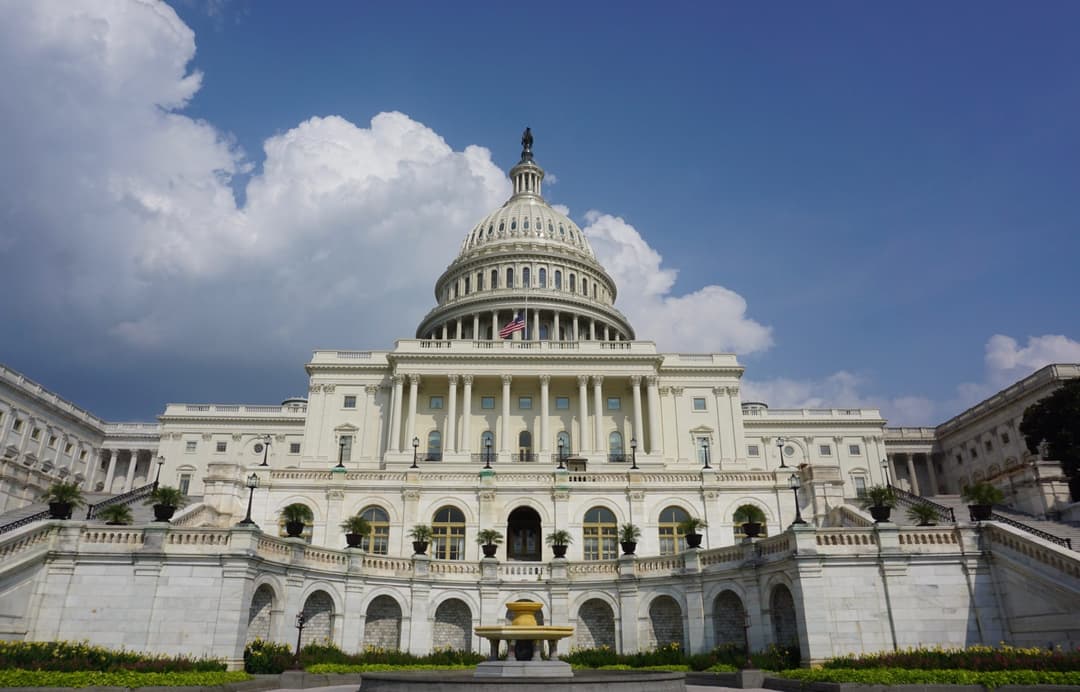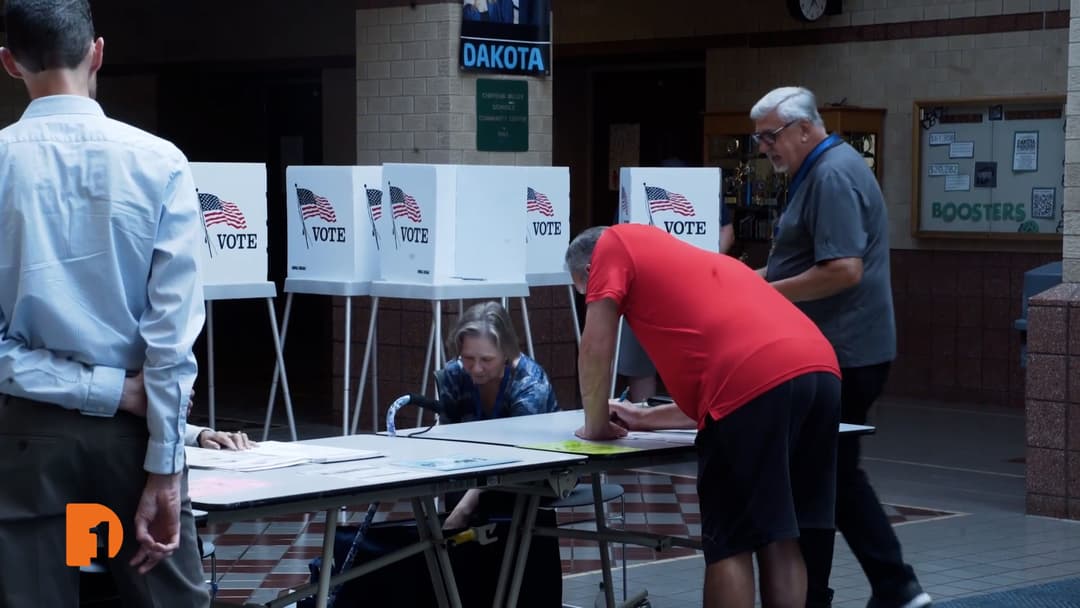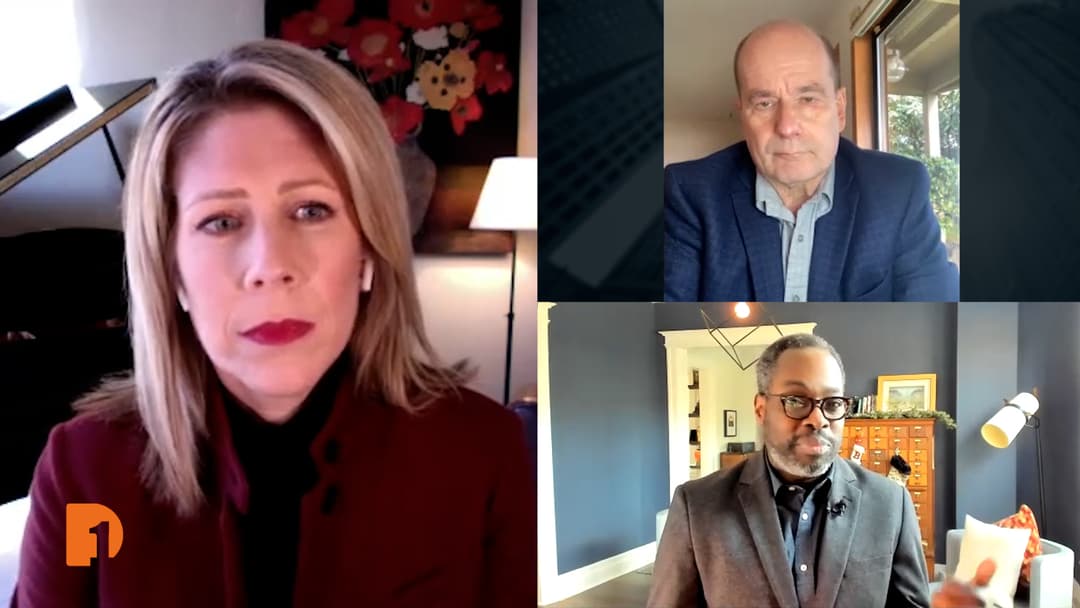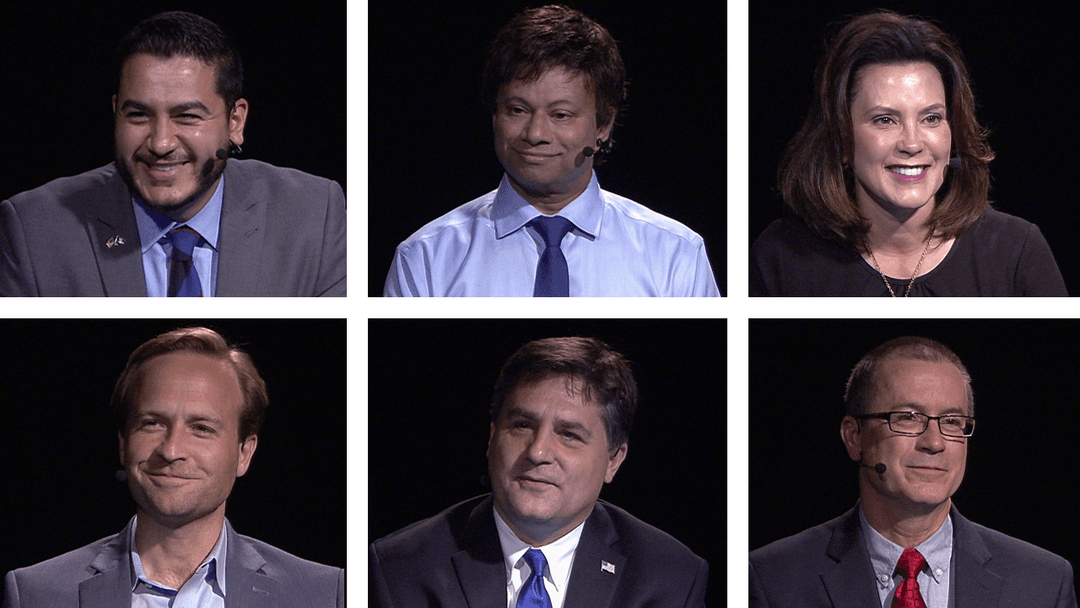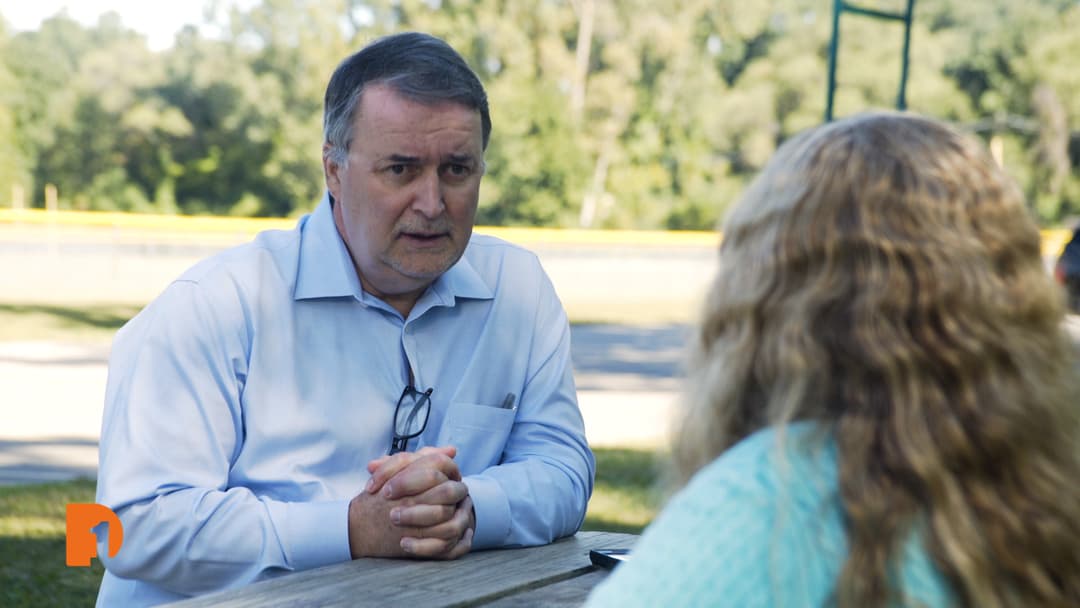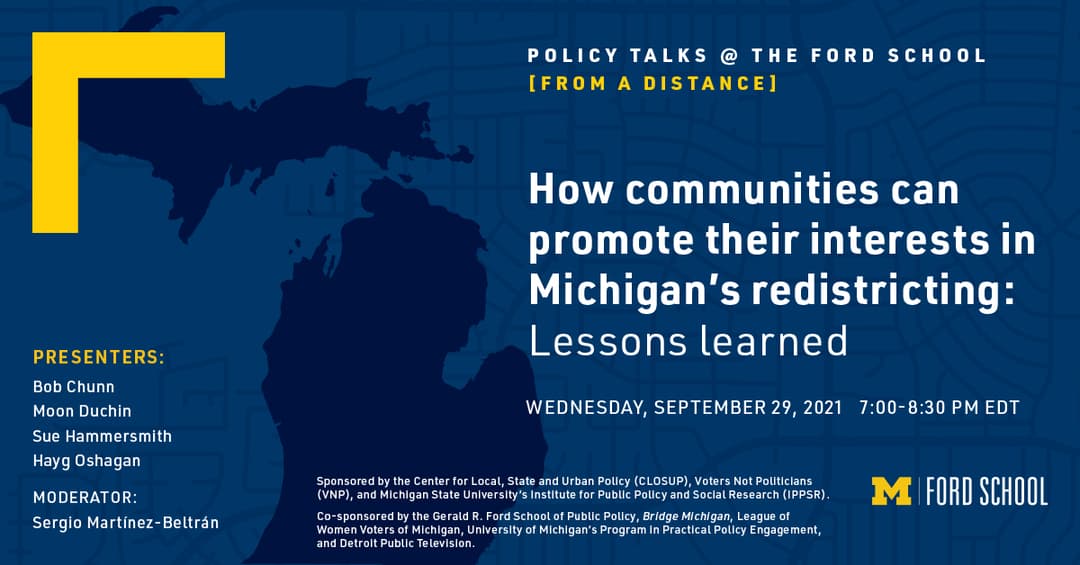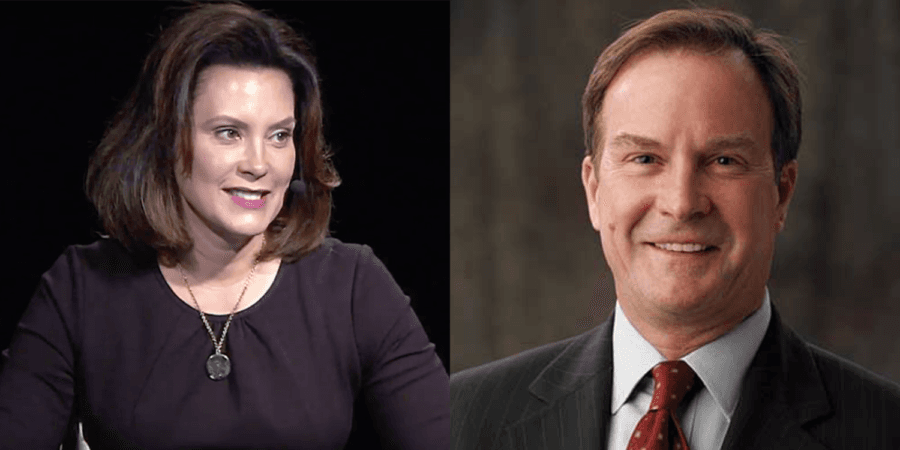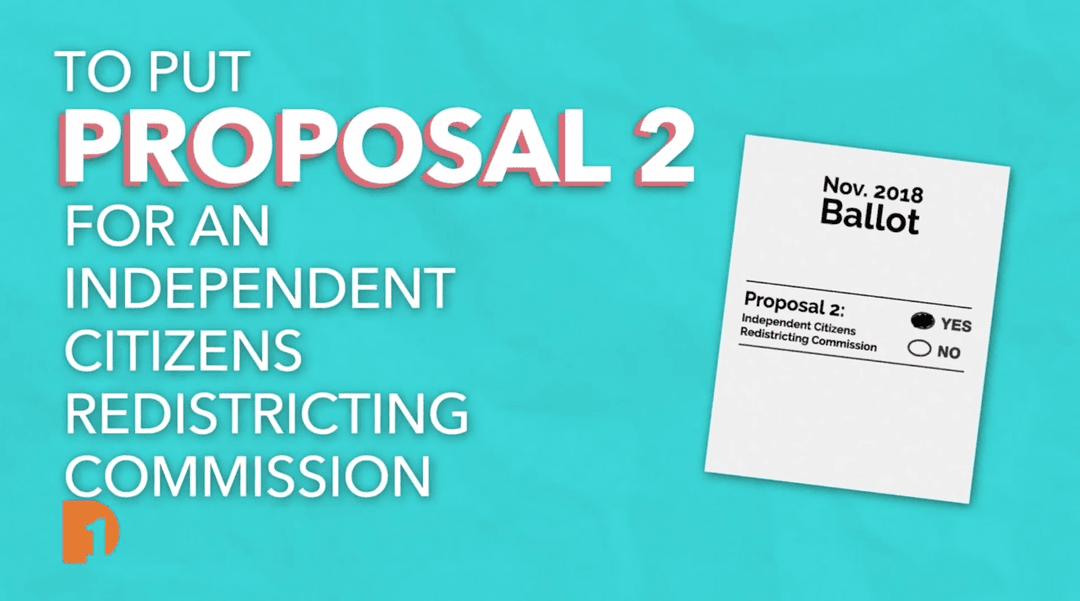
Where candidates stand: Voters Not Politicians Initiative
Aug 1, 2018
Updated 8/1/18:
Bridge Magazine’s Riley Beggin filed a report stating the Michigan Supreme Court has ruled 4-3 in favor of putting the Voters Not Politicians Initiative on the November ballot. Read the full article here>
Last week, the Michigan Supreme Court heard arguments about the Voters Not Politicians Initiative. The ballot committee Voters Not Politicians’ proposal would place redistricting in the hands an independent commission and not a partisan legislature. However, before the proposal can go on the November ballot, the state Supreme Court must render a verdict on whether the proposal falls into the category of a constitutional amendment or something that requires a revision of the constitution. A constitutional amendment can be made via a ballot measure, but a revision would require a constitutional convention as stated in a recent article by the Free Press.
The office of Secretary of State Ruth Johnson has asked the Michigan Supreme Court justices to make their decision by early August.
Bridge Magazine’s Riley Beggin asked 6 of the gubernatorial candidates to state their position on the Voters Not Politicians initiative:
Abdul El-Sayed (D):
Abdul El Sayed:
I think it’s amazing. Just look at its enemies. These are all people that have benefitted from a system that put corporations over every day people. So I believe in voters not politicians. I cannot wait to vote for it. If I’m not governor even if it doesn’t pass I will work to wed our system to independent bipartisan redistricting over the long-term because I will have oversight over the next redistricting process. It’s time for us to break this system that has left us with one of the most unequal distributions of government in the country, frankly. We are the second most gerrymandered state in the country. And just to be clear for folks who don’t understand exactly what this means — we got 38 senators Michigan. 27 of them are Republicans. 11 of them are Democrats. And we all know that the vote doesn’t go more than 45 to 55 either way in any given election. So we’ve got to stand up for a government that is actually fair where instead of politicians getting to pick what their voters are, voters get to pick who their politicians are.
Riley Beggin:
I want to ask one quick follow up on that — if legislators are drawing these lines you said you would have significant oversight over it — can you talk about what you would change? How you would do that?
Abdul El Sayed:
Well look, I believe that we have got to go to mathematically independent redistricting and you know, however much legislators are drawing lines has got to come through my office to get okayed. And I am unwilling to pass a system that is not fair. And I’ll be honest, when I say fair I mean not gerrymandered either way. We’re at a crisis point in our democracy right now. And that crisis point is that people have stopped trusting in the institutions whether it be journalism and the veracity of the free press or the veracity of their vote in the democracy. Because we have seen people play on the edges right? And change the conversation in so many ways that are not good for democracy. I don’t think it’s good to be gerrymandered either way. I mean currently right now it’s gerrymandered in favor of republicans obviously. But I wouldn’t want to gerrymander it in favor of democrats either. Because democracy suffers when people don’t believe in their democracy and don’t believe that it’s a fair and free process.
And so we’ve got to stand up together and demand that our elections matter again. That people have access to the vote openly again and that the work that you guys do bringing light to our democracy is trusted and believed again. That’s a lot of work. And so to me gerrymandering is one of the biggest enemies because it basically tells folks in certain communities that their vote doesn’t matter. It becomes a culture of just not voting because you don’t’ believe your vote matters. And we have got to address that and I think gerrymandering is one of the biggest reasons we are down this hole and we’ve got to get out of it.
Shri Thanedar (D):
Shri Thanedar:
Oh, I fully support it. It’s a great initiative. I expect it to pass. And as Governor, I look forward to redistricting and restoring Democratic practices back in Michigan.
Gretchen Whitmer (D):
Riley Beggin:
What’s your stance on the ballot measure to create an independent citizens redistricting commission? And if you oppose the voters not politicians initiative, what solution would you suggest to address gerrymandering?
Gretchen Whitmer:
Well, you don’t need to ask me part two because I’m going to support it. I’m a yes vote. When I was in the legislature, I saw every day the disservice that this partisan redistricting has because we are a state that goes back and forth. We’re 50/50. You can look at every election statewide and determine that. And right now the Republicans have a super majority in the senate because of the way that they’ve drawn the lines. And that means that our voices are not equal. That means two-thirds of the senate gets decided in a Republican primary and sets the agenda for all of us. Every voice needs to be respected and that’s why we’ve got to take redistricting away from the legislature. I would say that if it was Democratic control. I would say that if I really thought that we were going to flip everything in one fell swoop because it’s the right thing to do.
Brian Calley (R):
Riley Beggin:
What is your stance on the ballot initiative to change the way that we draw district lines? If you oppose the voter’s and not politician initiative, what solution would you suggest to address what some people say is gerrymandering?
Brian Calley:
I definitely oppose that. I mean I do not want to sound totally dismissive of the effort, because I appreciate the concerns. But everybody has politics. No matter who is drawing the lines, everybody has politics. The idea of we are going to have these people’s politics at play as opposed to those people’s politics at play. Somebody who has to face voters, I just think that is a better option in terms of drawing the lines. There are also rules in place in Michigan that are very objective. They have been respected ever since the Supreme Court – around the time I was born actually – put into place. That is that you have to break as few county lines as possible. To the extent to keep populations the same and you have to break county lines, you break as few township and municipal lines as possible. To the extent that you have a bigger place like the city of Detroit where you are going to have districts inside one city, break as few precinct lines as possible. There is an objective standard.
I do not really know how you come up with a standard more objective than that one. If you were to come up with a map that broke jurisdictional lines less than what was passed, I think you could take it to court and beat it. That is. There is an objective logical standard in place. I get the idea that people say some of these districts are lopsided. People do tend to live in communities that have the same types of political positions as them.
In Michigan, we see that. There are some areas where if you wanted to make Detroit a 50/50 district, you would have to gerrymander it. But if you do not gerrymander it and follow the non-gerrymandering rules that we have in place today, then they are going to be lopsided districts. Within the city of Detroit, it is 90% plus of people vote for Democrats. Then you have other parts in our state where 75% to 80% of people vote for republicans inside certain counties. When you take those things into consideration, I just think that the whole approach is well intentioned. But I think it makes it less objective than the system that we have today.
Patrick Colbeck (R):
Riley Beggin:
Yeah, what’s your stance on the ballot measure to create an independent commission for redistricting? And if you oppose the Voters Not Politicians Initiative, what solution would you suggest instead to address gerrymandering?
Patrick Colbeck:
Well, first of all, everybody needs to recognize that that proposal is not about the voters. It is about gerrymandering, and it’s about the Democrats trying to gerrymander the election process. When you actually…when Devin Scillian was on Channel 4, he actually interviewed the person who was actually promoting this and leading this effort. And when he asked them why are you doing this, they said well, we weren’t getting the election results we wanted. That sounds like a gerrymandering purpose to me. Doesn’t it?
So I think that the system is working just fine right now. Actually, if you look at my senate district, it’s about as close as you can get to a box as you’re ever going to find. Maybe they kept it nice and orthogonal for this engineer to go off and get his hands around it and they left the more creative ones to more artistic folks that are out there. But I think the system that we have right now is working fine. And people are going to go off and cite a bunch of examples of different things that are going on. Well, a lot of those creative lines that are drawn are actually based on Democrat policies and that are actually in statute that we have to comply with when we go off and put together those lines.
Riley Beggin:
You mean the Voting Rights Act?
Patrick Colbeck:
Yeah. Yeah. And so if you actually said it’s based on geography rather than demographics, it would have a different look. Because everybody is sensitive to the geometry of the districts. That’s where everybody’s getting so incensed by it and how crazy it is. But they need to realize that those gerrymandered districts are actually driven by demographic profiles, and people don’t migrate into a box. They migrate along some meandering lines sometimes, and so if you want orthogonal boxes, well, the Voting Rights Act is what’s driving that. Get rid of that. But I’m not proposing to do that either. I’m just saying leave it the way it is. Stop politicizing the process. And just focus on executing the process.
Jim Hines (R):
Riley Beggin:
What’s your stance on the ballot measure to create an independent citizens’ redistricting commission? And if you pose voters, not politicians, what would you suggest instead to fix the problem that some would say is gerrymandering?
Jim Hines:
Are we gerrymandering? Have we gerrymandered? That’s an open question. The standards that we’re using now are the apiol standards that have been in existence for many, many years, and they have gone to the Michigan Supreme Court. These standards look at county lines and municipal boundaries. For the most part, I don’t believe there has been jerrymandering.
Every ten years, they’re looked at. The legislature looks at them, and they’re voted on, approved by the governor. And that’s been an appropriate system, in my opinion. What’s being proposed is a commission with independent individuals making that decision apart from the legislature, apart for the governor, through the secretary of state. I don’t believe that that’s appropriate.
Riley Beggin:
So change nothing?
Jim Hines:
I wouldn’t change that aspect of it, no.
More on the Detroit Journalism Cooperative Gubernatorial Candidate Interviews:
This year, Michigan voters will be selecting a new governor, who will be facing important issues that will determine the health and vitality of the state for years to come.
The first step in the electoral process is the state primary on August 7, when the standard bearer for both the Democratic and Republican parties will be determined.
The Detroit Journalism Cooperative invited all major party candidates to the Detroit Public Television studio for individual, hour-long interviews with a panel of its reporters. The candidates received virtually the same questions and were able to respond at length, providing voters with a much more in-depth and contextual understanding of where each stood on the issues of importance to the state than they can glean from conventional coverage.
So please consider their opinions carefully and, most of all, vote!
Every candidate accepted the invitation to be interviewed except for Attorney General Bill Schuette.
Stay Connected
Subscribe to One Detroit’s YouTube Channel and don’t miss One Detroit on Thursdays at 7:30 p.m. and Sundays at 9 a.m. on Detroit PBS, WTVS-Channel 56.
Catch the daily conversations on our website, Facebook, Twitter @OneDetroit_PBS, and Instagram @One.Detroit
Related Posts
Leave a Reply
Your email address will not be published. Required fields are marked*


